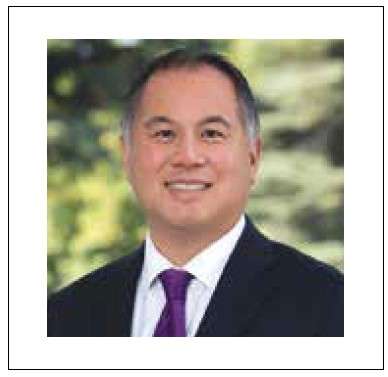
By Assemblymember Phil Ting–
As we move on from the pandemic, it is clear back-to-normalcy won’t happen quickly, especially for our kids. Not only did they lose more than a year of in-person learning, but they also missed out on some emotional and social development that comes with human interaction. Isolation, anxiety, stress, and depression are among the impacts of distance learning, and such effects simply don’t go away once school reopens. In fact, they can be long-lasting.
But thanks to a budget surplus and an infusion of federal funds, California is in a unique financial position to make transformational change to our youth’s mental health system. As Assembly Budget Chair, I wholeheartedly support an investment of more than $4 billion to make this major shift happen. We need to address our children’s needs now and prepare for a possible post-pandemic crisis down the line.
A recent study by the Centers for Disease Control found that, from mid-March to October 2020, emergency room visits among children having mental health issues rose dramatically when compared to the previous year. For youngsters five to eleven years old, the rate was 24 percent higher, while adolescents twelve to seventeen years old jumped 31 percent.
Think about the ones who didn’t go to the ER. There must be thousands more quietly suffering, not knowing how to ask for help or where to turn. Let’s face it. Even before COVID-19, our youth behavioral health system was challenging to navigate. Our new state budget aims, however, to make access to mental health services easier for our children, youth, and college students.
Many improvements we hope will make a difference are included in the Children and Youth Behavioral Health Initiative. Through the state budget, this initiative expands and strengthens the partnerships between the school districts and their county behavioral health departments, so they can better connect students to mental health screenings and care. With increased grant funding, more providers will be available and more services can be offered on-site at schools.
We also want to address trauma. Prior to the pandemic we knew that students go through Adverse Childhood Experiences (ACEs), which are linked to chronic health problems, substance abuse, and mental illness. They can also negatively impact academic performance, job opportunities, and earning potential. The state budget will allocate funding to research, treat, and prevent ACEs.
Furthermore, we must address equity in services and care, ensuring there are no mental health disparities among varying communities, particularly for children who require language and culturally competent services. Similarly, income shouldn’t determine whether children can get help. For families on Medi-Cal, dyadic developmental psychotherapy will be added to their benefits, as well as services to address mild to moderate mental health needs.
And in under-resourced neighborhoods, we can scale up youth drop-in wellness centers. We additionally hope to develop a Peer Social Media Network to support K–12 students who are being bullied, or at risk of being bullied, based on race, ethnicity, or language spoken.
Of course, a revamp of this significance to our mental health system will require a bigger corps of behavioral health professionals, including psychiatrists, substance abuse counselors, and social workers. California will invest in programs like apprenticeships and peer training. We will also boost education loan repayment, scholarships, and stipends to encourage more Californians to enter the behavioral health field.
Unquestionably, the urgency for mental health services in our post-pandemic world has grown. We must meet the challenge. If your children are in need of such support, this budget will be there for them. If you have a desire to help our kids, now is the time to get into the profession. Helping our children regain their social and emotional footing is just as important as catching them up academically, if we want them to grow up to be healthy adults.
Phil Ting represents the 19th Assembly District, which includes the Westside of San Francisco along with the communities of Broadmoor, Colma, and Daly City.
Published on June 24, 2021
Recent Comments